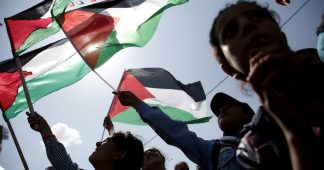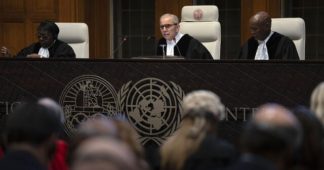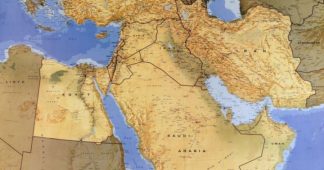By Marwan Emil Toubassi
Despite the continuation of the ugliness of the genocidal aggression against our people and its various repercussions, the Israeli occupation state is witnessing the escalation of its multi-faceted crises, and it is experiencing a period of unprecedented political, security, social and economic tension after the events of October 7 until now, which led to escalating criticism and demonstrations against the government. Benjamin Netanyahu . In describing the current situation, Ehud Barak, who is considered one of the most important generals in their army and a former prime minister, said, “Today the State of Israel is facing the threat of an existential crisis in its history. We are talking about a war that has transformed from an existential threat according to the Israeli assessment to an existential crisis due to the drivers of Israeli policy.”In this article, I will attempt to discuss the impact of these tensions on Israeli politics and its future.
In terms of the internal situation and political challenges, Netanyahu and his government are facing great pressure from within.
Israeli society after the 7th of October is not at all similar to the Israeli society that existed before the 7th of October. Netanyahu is still dealing with him with the same beliefs and the same tactics and strategies that he dealt with before October 7th. These pressures are evident in the deep differences within the government coalition, especially with its partners from the extreme religious right. These differences relate to security policies and legal legislation, as the religious Zionist parties demand more stringency in dealing with security issues, while Netanyahu seeks to achieve a balance that preserves the stability of the government and the continuation of aggression against our people. This tension weakens the cohesion of the coalition and makes it difficult to achieve any real progress in the policies related to the internal affairs of the occupying state.
The latest opinion polls indicate a decline in popular support for the Netanyahu government, as this decline reflects a state of public dissatisfaction with the government’s performance, especially with regard to dealing with the security and economic crises. On the other side, the popularity of opposition parties, especially those led by former generals such as Benny Gantz and Ezenkot, is increasing. This shift in popular support reflects a growing desire to change political leadership and find new solutions to the crises their societies are experiencing.
On the other hand, Israel faces increasing international pressure to achieve a ceasefire and reach a political solution related to what they call “the next day” that ends its aggression in Gaza specifically and reaches an exchange deal and clarity on the future of Gaza. Which, for us, can only be part of the comprehensive political solution to end the occupation and establish the Palestinian state on the basis of the unity of the land and the people, despite the expansion of the aggression in all of Palestine. At the same time, its crimes and military operations continue, which increases its internal and external repercussions. The Israeli occupation army faces internal criticism regarding the effectiveness of military operations and the high human cost that has been increasing in the recent period, something it was not previously accustomed to, despite the tactical successes that they claim, which are summarized in the crimes committed as part of achieving genocide. However, the army has not yet achieved its strategic goals that its government announced from the beginning, which increases pressure on the Netanyahu government. At the international level, criticism from various countries is increasing in intensity, and the people’s protest movement in countries of the world and serious calls for boycott are escalating. The occupying state, which suffers from international isolation, stands to a large extent before the international judiciary, which is expected to issue, within days, arrest warrants against Israeli leaders, including Netanyahu and Gallant. , whatIt is considered an unprecedented event in the history of their entity, which today embodies the meanings of the rogue regime.
On the other hand, it is likely that there will be a limited escalation between Israel and Hezbollah without significant intervention from the major powers. This may include an intense exchange of fire across the border, but without turning into a comprehensive war with the aim of pushing the Lebanese to the north of the Litani. However, if the aggression against Lebanon escalates significantly, Iran and Russia may intervene indirectly by supporting Hezbollah or diplomatic pressure and international movements. Turkey may intervene if it sees an opportunity to advance its interests or in response to direct threats, or perhaps to achieve its goals from the dispute on the Cyprus island, which hosts Israeli military bases on its territory.
— Future scenarios and possibilities for political change.
If Netanyahu’s government fails to achieve internal stability or decisive military success consistent with its stated goals, this could lead to increased calls for new elections or for the formation of an alternative government. These political shifts could be led by figures from the military or the liberal Zionist opposition, radically changing the drivers of Israeli politics. The possible scenario includes the formation of a new coalition that includes elements of their security establishment and politicians from the liberal Zionist camp, and this may represent a fundamental change in the approach of the leadership and the policies followed, which are still unanimous in refusing to reach a political settlement to the conflict based on the recognition and national rights of our people, first and foremost the right toSelf-determination .
The occupying state is witnessing a state of turmoil in its already disparate societies, as many of them today are calling for an end to the war, to release their prisoners, and to mitigate the severity of the various repercussions, such as the increase in adverse foreign migration, the deterioration of economic conditions, the withdrawal of many international companies from their markets, as well as the inability of residents of cities and villages. In the North and South to return to their homes, in addition to their demands to achieve fundamental political reforms to their system. The ongoing demonstrations reflect a state of deep dissatisfaction towards the current government and its policies, and manifestations of anxiety are increasing, turning from political and security crises into deeper conflicts within the heterogeneous Israeli society, which may exacerbate the current situation and lead to an escalation of violence and division, which will have various social effects that are reflected in the dimension. The existentialist.
— The role of the army and security institutions.
The Israeli occupation army, which still retains the trust of a large portion of their public, plays a decisive role in the current political scene. The statements of military officials and their criticism of Netanyahu reflect the extent of tension between the political and military leadership. The army may press for a change in policies or even in leadership, which could have a major impact on Netanyahu’s political future, especially in light of these conditions, where the army becomes not only a player on the battlefield but also a major element in the internal political balance of the occupying state. And participate in political decisions, and this is what you supportThe American administration is currently working to serve its project in the region.
Now, after nine months of the war of extermination, we find that the leaders of the Israeli occupation are forced to state several truths to the Israeli public. In addition to the statements and confessions of a number of their leaders about the reality of the situation, the spokesman for the occupation army, Hejari, comes out to say that “Hamas is an idea and cannot be eliminated.” “, and the Major General’s statementsIn reserve, Dan Harel, former deputy chief of staff, said, “Hamas cannot be wiped out,” reflecting a complex and multidimensional reality regarding the Israeli-Palestinian conflict.
Their statements indicate the reality of the escalating crises experienced by the occupying state. It is as if they are saying, in my opinion, that military solutions alone will not be sufficient to eliminate the idea represented by Hamas and the resistance, but rather there must be integrated political, social and economic approaches to address the roots of the conflict, which they do not talk about in the comprehensiveness of the reality of the continued occupation. These statements reflect the reality of the situation and the form of the dispute and crisis between Netanyahu and their security establishment, and may open the door to new thinking that may contribute to seeking a different vision of the nature of the course of the upcoming events that the American administration and the Israeli opposition may seek by embodying the establishment of what I talked about in my previous article towards creating two entities to kill the principle. Establishing a continuous sovereign state and a national liberation project, and this is also included in the pressures and sanctions exerted in Jerusalem and the West Bank in order to eliminate the entity of the Liberation Organization and the attempt to impose American agendas on it from Washington and some capitals around , which requires firmness and unity and mobilizing the role of the PLO and the Palestinian national movement to confront it.
We remind our readers that publication of articles on our site does not mean that we agree with what is written. Our policy is to publish anything which we consider of interest, so as to assist our readers in forming their opinions. Sometimes we even publish articles with which we totally disagree, since we believe it is important for our readers to be informed on as wide a spectrum of views as possible.











